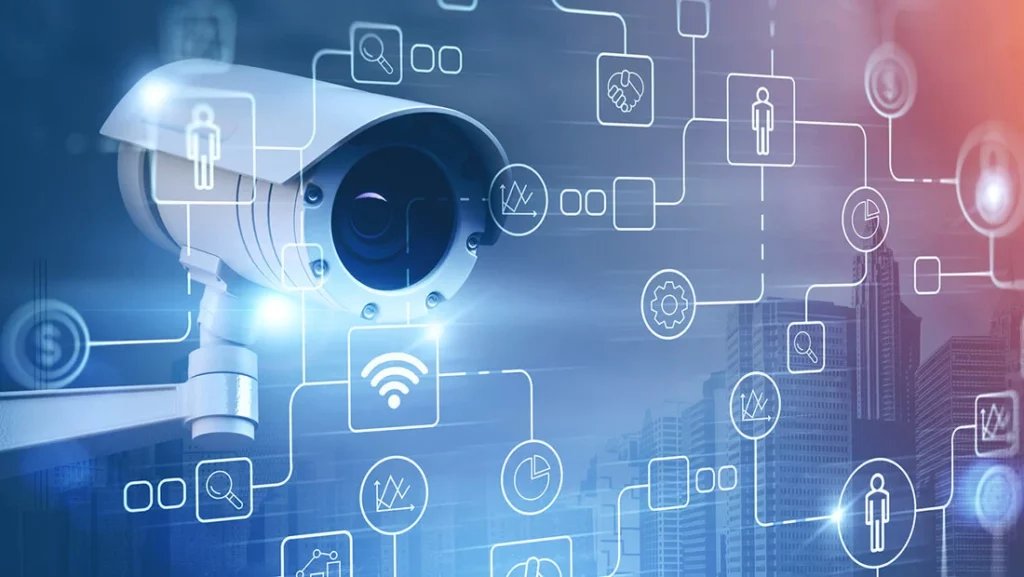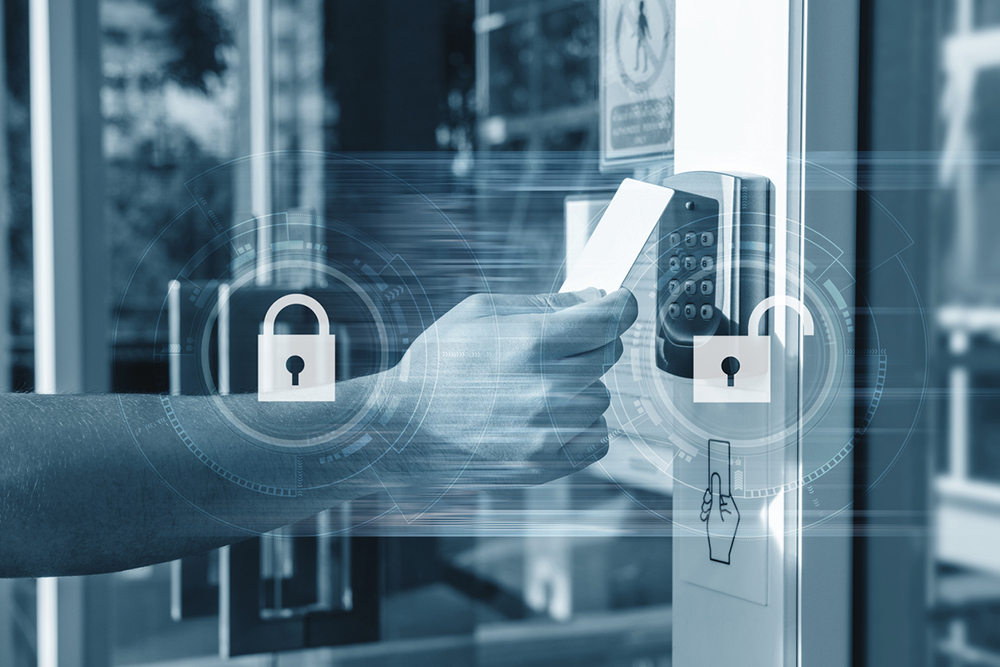How Business Security Systems Safeguard Your Company’s Assets
In an increasingly unpredictable world, the importance of safeguarding business assets cannot be overstated. Business security systems have evolved significantly over the years, offering a range of solutions tailored to meet the unique needs of various enterprises. From physical security measures to advanced digital protections, these systems play a crucial role in ensuring the safety and integrity of a company’s resources.
The Importance of Business Security
Every business security systems, regardless of its size or industry, faces threats that can compromise its assets. These threats can range from theft and vandalism to cyber-attacks and data breaches. Implementing a robust security system is essential not only for protecting physical assets but also for maintaining the trust of customers and stakeholders.
Protecting Physical Assets
Physical assets include everything from office equipment and inventory to buildings and vehicles. A comprehensive security system can deter potential intruders and provide peace of mind to employees. Security measures such as surveillance cameras, access control systems, and alarm systems work in tandem to create a secure environment.
For instance, surveillance cameras can monitor activities in and around the premises, providing valuable evidence in the event of an incident. Access control systems ensure that only authorised personnel can enter sensitive areas, thereby reducing the risk of theft and unauthorised access. Moreover, the installation of motion sensors and adequate lighting can further enhance security by making it more difficult for intruders to operate unnoticed, especially during the night. Regular security audits can also help identify vulnerabilities in the existing security measures, allowing businesses to proactively address potential weaknesses before they can be exploited.
Safeguarding Digital Assets
In today’s digital age, businesses are increasingly reliant on technology. This reliance, however, comes with its own set of challenges. Cybersecurity threats can lead to significant financial losses and reputational damage. A comprehensive business security system must therefore include robust cyber protection measures.
Firewalls, antivirus software, and intrusion detection systems are essential components of a digital security strategy. Regular updates and employee training on cybersecurity best practices further enhance the protection of sensitive data and information. Additionally, implementing multi-factor authentication can greatly reduce the risk of unauthorised access to critical systems. As cyber threats continue to evolve, businesses must remain vigilant and adaptable, ensuring that their security protocols are not only current but also capable of addressing emerging threats. Engaging with cybersecurity experts for regular assessments can provide invaluable insights into the latest trends and vulnerabilities, allowing businesses to stay one step ahead in safeguarding their digital landscape.
Components of a Comprehensive Security System
To effectively safeguard a company’s assets, a security system must encompass various components, each designed to address specific vulnerabilities. Understanding these components is crucial for developing a well-rounded security strategy.
Surveillance Systems
Surveillance systems are among the most visible aspects of business security. They act as both a deterrent and a means of monitoring activities. Modern surveillance systems utilise high-definition cameras, often equipped with features such as night vision and motion detection.
These systems can be integrated with mobile applications, allowing business owners and security personnel to monitor feeds in real-time, regardless of their location. This level of accessibility ensures that any suspicious activity can be addressed promptly.
Access Control Systems
Access control systems are vital for managing who can enter specific areas within a business. These systems can range from simple keycard access to sophisticated biometric scanners that use fingerprints or facial recognition technology.
By limiting access to sensitive areas, businesses can significantly reduce the risk of internal theft and ensure that confidential information remains secure. Furthermore, access logs can provide valuable insights into who accessed certain areas and when, aiding in investigations if necessary.
Intrusion Detection Systems
Intrusion detection systems (IDS) are designed to detect unauthorised access attempts. These systems can trigger alarms and alert security personnel in real-time, allowing for immediate response to potential threats.
Modern IDS can be integrated with other security measures, such as surveillance cameras, to provide a comprehensive view of security breaches. This integration enhances the overall effectiveness of a business’s security strategy.
The Role of Employee Training
While technology plays a critical role in safeguarding assets, human factors are equally important. Employee training is a vital component of any security strategy, as it ensures that staff are aware of potential threats and know how to respond effectively.
Recognising Security Threats
Employees should be trained to recognise various security threats, from phishing emails to suspicious behaviour in the workplace. Awareness training can empower staff to take proactive measures to protect both physical and digital assets.
Regular training sessions can help reinforce these concepts and keep security top of mind. By fostering a culture of security awareness, businesses can significantly reduce their vulnerability to threats.
Emergency Response Protocols
In the event of a security breach, having well-defined emergency response protocols is essential. Employees should know how to react in different scenarios, whether it’s a fire, a break-in, or a cyber-attack.
Regular drills and simulations can prepare staff for real-life situations, ensuring that everyone knows their role and responsibilities. This preparedness can make a significant difference in mitigating the impact of a security incident.

Cost-Benefit Analysis of Security Systems
Investing in a comprehensive security system may seem daunting, especially for small businesses with limited budgets. However, the cost of not implementing such systems can far outweigh the initial investment. Learn more about choosing commercial security systems: a comprehensive overview.
Preventing Financial Losses
The financial implications of security breaches can be devastating. Theft, vandalism, and data breaches can lead to significant losses, not only in terms of immediate financial impact but also in potential legal liabilities and reputational damage.
By investing in security systems, businesses can significantly reduce the likelihood of these incidents occurring. The cost of preventative measures is often much lower than the potential losses associated with a security breach.
Enhancing Customer Trust
In an era where data breaches are prevalent, customers are increasingly concerned about the security of their information. By demonstrating a commitment to security through robust systems, businesses can enhance customer trust and loyalty.
Customers are more likely to engage with businesses that prioritise their security, leading to increased sales and a stronger brand reputation. This trust can translate into long-term relationships and sustained business growth.
Future Trends in Business Security Systems
The landscape of business security is continually evolving, driven by advancements in technology and changing threat landscapes. Staying informed about future trends can help businesses adapt their security strategies accordingly.
Artificial Intelligence and Machine Learning
Artificial intelligence (AI) and machine learning are set to revolutionise the way businesses approach security. These technologies can analyse vast amounts of data to identify patterns and predict potential threats, allowing for proactive measures to be taken.
AI-driven security systems can enhance surveillance capabilities, automate responses to incidents, and improve overall efficiency. As these technologies become more accessible, businesses of all sizes can benefit from their implementation.
Integration of IoT Devices
The Internet of Things (IoT) is another trend that is reshaping business security. IoT devices, such as smart locks and connected cameras, can provide real-time data and insights into security status.
Integrating these devices into a comprehensive security system allows for greater flexibility and control. Businesses can monitor and manage security measures remotely, ensuring that they can respond to threats quickly and effectively.

Conclusion
In conclusion, business security systems are essential for safeguarding a company’s assets in today’s complex environment. By investing in a comprehensive security strategy that includes physical and digital protections, employee training, and awareness of emerging trends, businesses can significantly reduce their vulnerability to threats.
Ultimately, the goal of any security system should be to create a safe and secure environment that fosters trust and confidence among employees and customers alike. As the landscape of threats continues to evolve, so too must the approaches businesses take to protect their most valuable assets.

